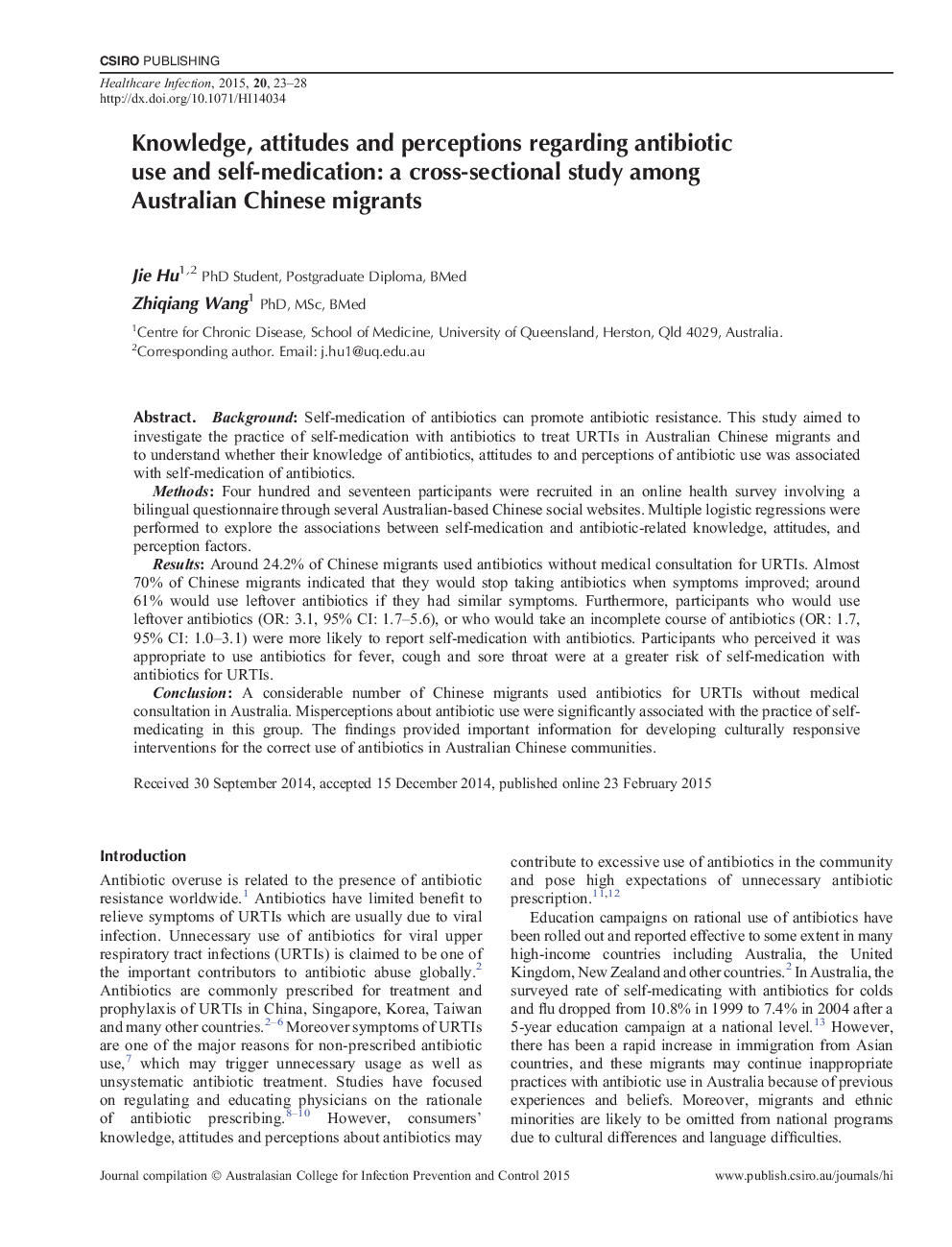| Article ID | Journal | Published Year | Pages | File Type |
|---|---|---|---|---|
| 2682810 | Healthcare infection | 2015 | 6 Pages |
BackgroundSelf-medication of antibiotics can promote antibiotic resistance. This study aimed to investigate the practice of self-medication with antibiotics to treat URTIs in Australian Chinese migrants and to understand whether their knowledge of antibiotics, attitudes to and perceptions of antibiotic use was associated with self-medication of antibiotics.MethodsFour hundred and seventeen participants were recruited in an online health survey involving a bilingual questionnaire through several Australian-based Chinese social websites. Multiple logistic regressions were performed to explore the associations between self-medication and antibiotic-related knowledge, attitudes, and perception factors.ResultsAround 24.2% of Chinese migrants used antibiotics without medical consultation for URTIs. Almost 70% of Chinese migrants indicated that they would stop taking antibiotics when symptoms improved; around 61% would use leftover antibiotics if they had similar symptoms. Furthermore, participants who would use leftover antibiotics (OR: 3.1, 95% CI: 1.7–5.6), or who would take an incomplete course of antibiotics (OR: 1.7, 95% CI: 1.0–3.1) were more likely to report self-medication with antibiotics. Participants who perceived it was appropriate to use antibiotics for fever, cough and sore throat were at a greater risk of self-medication with antibiotics for URTIs.ConclusionA considerable number of Chinese migrants used antibiotics for URTIs without medical consultation in Australia. Misperceptions about antibiotic use were significantly associated with the practice of selfmedicating in this group. The findings provided important information for developing culturally responsive interventions for the correct use of antibiotics in Australian Chinese communities.
